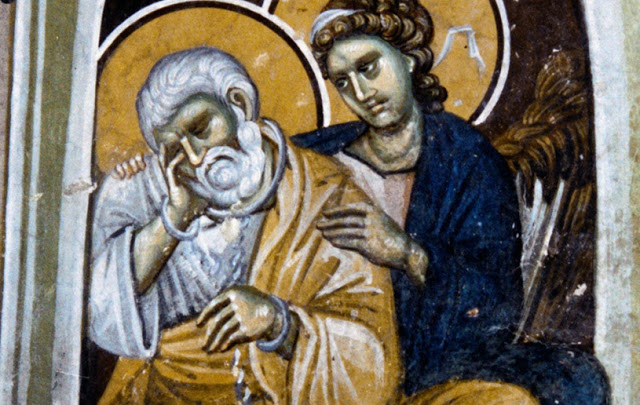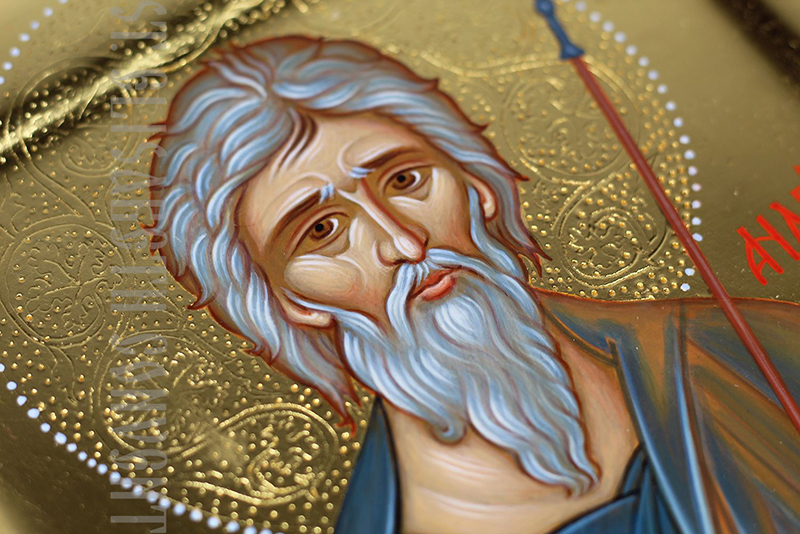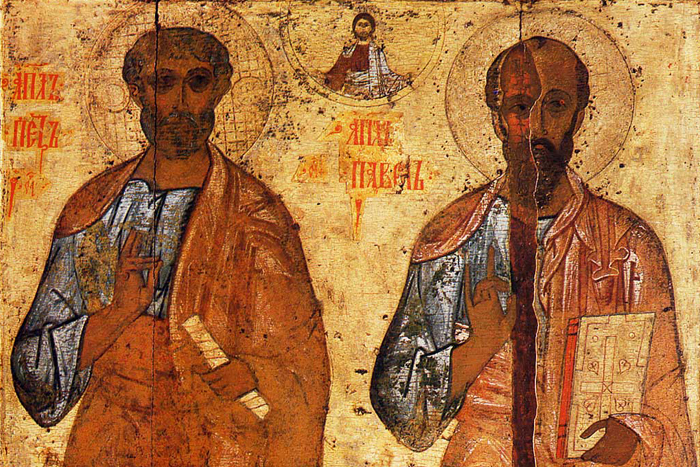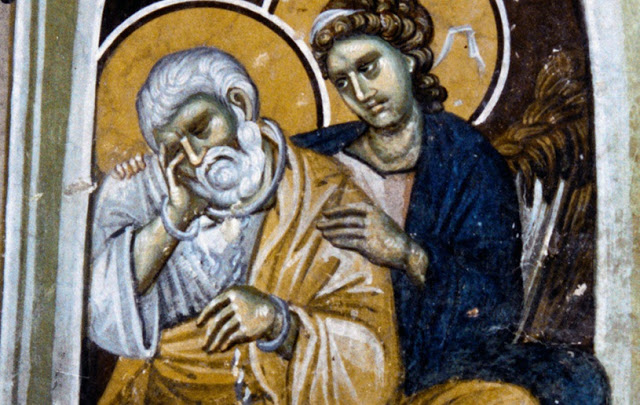 “Rejoice to the extent that you partake of Christ’s sufferings, that when His glory is revealed, you may also be glad with exceeding joy” (1 Peter 4:13).
“Rejoice to the extent that you partake of Christ’s sufferings, that when His glory is revealed, you may also be glad with exceeding joy” (1 Peter 4:13).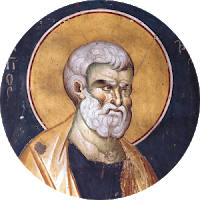 Once Lord Jesus Christ told His disciples and apostles: “But watch out for yourselves, for they will deliver you up to councils, and you will be beaten in the synagogues. You will be brought before rulers and kings for My sake, for a testimony to them… But when they arrest you and deliver you up, do not worry beforehand, or premeditate what you will speak. But whatever is given you in that hour, speak that; for it is not you who speak, but the Holy Spirit” (Mark 13:9, 11).
Once Lord Jesus Christ told His disciples and apostles: “But watch out for yourselves, for they will deliver you up to councils, and you will be beaten in the synagogues. You will be brought before rulers and kings for My sake, for a testimony to them… But when they arrest you and deliver you up, do not worry beforehand, or premeditate what you will speak. But whatever is given you in that hour, speak that; for it is not you who speak, but the Holy Spirit” (Mark 13:9, 11).Those words came to life already at the apostolic time. We know that during their preaching of the Kingdom of Heaven, Christ’s disciples suffered a lot for His name from various peoples who did not want to accept the news about the Resurrection of the Messiah. Many apostles faced various misadventures and tortures; they were beaten with sticks and stones, were imprisoned and had to starve and live in need.
The same concerns Apostle Peter who suffered from persecutions of King Herod: “Then he killed James the brother of John with the sword. And because he saw that it pleased the Jews, he proceeded further to seize Peter also. Now it was during the Days of Unleavened Bread. So when he had arrested him, he put him in prison, and delivered him to four squads of soldiers to keep him, intending to bring him before the people after Passover” (Acts 12:2-4). While Peter was in prison, the whole church wholeheartedly prayed for him.
What was Apostle Peter thinking about during his captivity? The Book of Acts tells us that it was the time of Unleavened Bread, and the great feast of Pascha would come soon. Most likely, Peter could not but remember the events of that Pascha, of those days, when his Divine Teacher and Lord Jesus Christ washed his feet. “You shall never wash my feet!” – Peter said then. But the Lord replied to him: “If I do not wash you, you have no part with Me”.
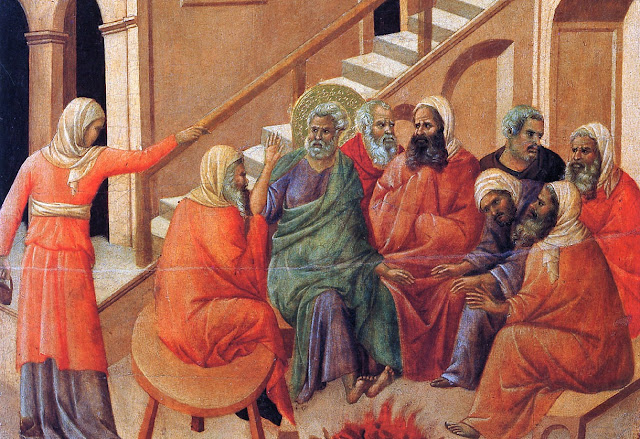 |
| The Denial of Peter |
What else could the Supreme Apostle think about? He was probably sure that he did not have long to live. Apostle James, son of Zebedee, was executed with a sword, and Archdeacon Stephen was publicly beaten to death with stones. And now he was captured and would be brought to people after Pascha. Would he manage not to deny Christ this time? “Lord, why can Inot follow You now? I will lay down my life for Your sake.” Jesus answered him, “Will you lay down your life for My sake? Most assuredly, I say to you, the rooster shall not crow till you have denied Me three times” (John 13:37-38).
Perhaps, that was exactly what he was thinking about before he fell asleep. Was he worrying or scared? We do not know. However, the fact that Peter was lying bound with chains between two wardens and did not mention the angel, whose appearance filled the dungeon with light, proves that Apostle Peter was sleeping quietly, for he had put his life into God’s hands. To awake the apostle, the angel had even to poke him in his side. Peter woke up, the chains fell from his hands, and the angel released him from prison.
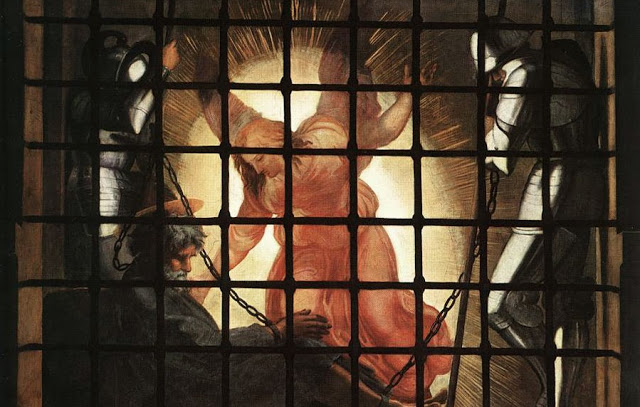 |
| The angel releases Apostle Peter |
His time had not come yet, for he had to work a lot on preaching the Word of God, on preaching the Kingdom of Heaven, which had come near, and on spreading the Divine Grace, which purifies, enlightens and revives the whole human being.
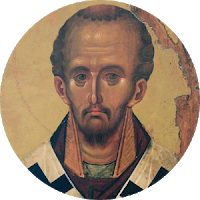 What St. John Chrysostom says in his works:
What St. John Chrysostom says in his works:“In that night He delivered him. And a light shined in the prison, that he might not deem it fancy : and none saw the light, but he only. For if, not- withstanding this was done, he thought it a fancy, because of its unexpectedness; if this had not been, much more would he have thought this: so prepared was he for death. For his having waited there many days and not being saved it-ia. caused this. Why then, say you, did He not suffer him to fall into the hands of Herod, and then deliver him? Because that would have brought people into astonishment, whereas this was credible: and they would not even hare been thought human beings”.
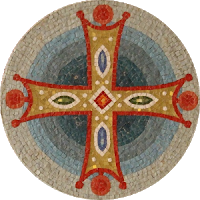 Reflections in the Holy Church tradition:
Reflections in the Holy Church tradition:In very truth, thou wast called the Rock most rightly, whereupon the Lord hath strengthened the unshakeable Faith of the Church; for He made of thee a great chief shepherd over the rational sheep of His own flock. Wherefore, in that He is good, He hath appointed thee to hold the keys of the Heavens’ gates, to open unto all that with faith strive to enter in thereat. Hence, as was meet and right, thou wast vouchsafed to be crucified like as thy Master was. Do thou therefore entreat Him to enlighten and to save our souls. (Ainoi (praises) in Tone 4, Verse 3)
To be continued…

